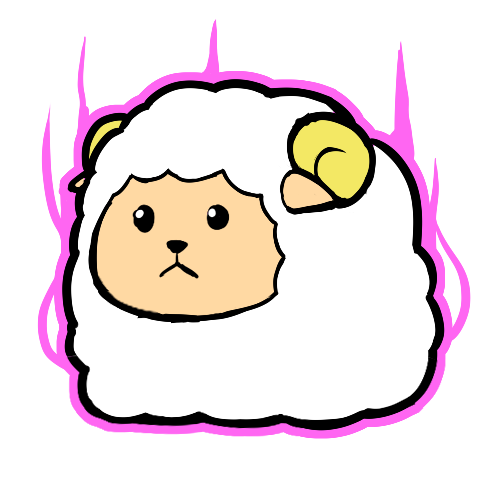C++ lecture section8 [1/1]
TextRPG(OOP) #1 / #2 / #3
// Game.h
class Player; // 전방선언
class Field;
class Game
{
public:
Game();
~Game();
void Init();
void Update();
void CreatePlayer();
private:
Player* _player;
Field* _field;
};
// Game.cpp
#include "Game.h"
#include "Player.h"
#include "Field.h"
#include <iostream>
using namespace std;
Game::Game() : _player(nullptr), _field(nullptr)
{
}
Game::~Game()
{
if (_player != nullptr)
delete _player;
if (_field != nullptr)
delete _field;
}
void Game::Init()
{
_field = new Field();
}
void Game::Update()
{
if (_player == nullptr)
CreatePlayer();
if (_player->IsDead())
{
delete _player;
_player = nullptr;
CreatePlayer();
}
_field->Update(_player);
}
void Game::CreatePlayer()
{
while (_player == nullptr)
{
cout << "-------------------------" << endl;
cout << "캐릭터를 생성하세요!" << endl;
cout << "1)기사 2)궁수 3)법사" << endl;
cout << "-------------------------" << endl;
cout << "> ";
int input = 0;
cin >> input;
if (input == PT_Knight)
_player = new Knight();
else if (input == PT_Archer)
_player = new Archer();
else if (input == PT_Mage)
_player = new Mage();
}
}
// Creature.h
#ifndef CREATURE_H
#define CREATURE_H
enum CreatureType
{
CT_PLAYER = 0,
CT_MONSTER = 1
};
class Creature
{
public:
Creature(int creatureType)
: _creatureType(creatureType), _hp(0), _att(0), _def(0) {}
virtual ~Creature() {}
virtual void Printinfo() = 0;
void OnAttacked(Creature* attacker);
bool IsDead() { return _hp <= 0; };
protected:
int _creatureType;
int _hp;
int _att;
int _def;
};
#endif
// Creature.cpp
#include "Creature.h"
void Creature::OnAttacked(Creature* attacker)
{
int damage = attacker->_att - _def;
if (damage < 0)
damage = 0;
_hp -= damage;
if (_hp < 0)
_hp = 0;
}
// Player.h
#include "Creature.h"
enum PlayerType
{
PT_Knight = 1,
PT_Archer = 2,
PT_Mage = 3
};
class Player : public Creature
{
public:
Player(int playerType) : Creature(CT_PLAYER), _playerType(playerType) {}
virtual ~Player() {}
void Printinfo();
protected:
int _playerType;
};
class Knight : public Player
{
public:
Knight() : Player(PT_Knight)
{
_hp = 150;
_att = 10;
_def = 5;
}
};
class Archer : public Player
{
public:
Archer() : Player(PT_Archer)
{
_hp = 80;
_att = 15;
_def = 3;
}
};
class Mage : public Player
{
public:
Mage() : Player(PT_Mage)
{
_hp = 50;
_att = 25;
_def = 0;
}
};
// Player.cpp
#include "Player.h"
#include <iostream>
using namespace std;
void Player::Printinfo()
{
cout << "-------------------" << endl;
cout << "[플레이어 정보] " << "HP : " << _hp
<< " ATT : " << _att
<< " DEF : " << _def << endl;
cout << "-------------------" << endl;
}
// Field.h
class Player;
class Monster;
class Field
{
public:
Field();
~Field();
void Update(Player* player);
void CreateMonster();
void StartBattle(Player* player);
private:
Monster* _monster;
};
// Field.cpp
#include "Field.h"
#include "Monster.h"
#include "Player.h"
#include <stdlib.h>
Field::Field() : _monster(NULL)
{
}
Field::~Field()
{
if (_monster != NULL)
delete _monster;
}
void Field::Update(Player* player)
{
if (_monster == NULL)
CreateMonster();
StartBattle(player);
}
void Field::CreateMonster()
{
int randValue = 1 + rand() % 3;
switch (randValue)
{
case MT_SLIME:
_monster = new Slime();
break;
case MT_ORC:
_monster = new Orc();
break;
case MT_SKELETON:
_monster = new Skeleton();
break;
}
}
void Field::StartBattle(Player* player)
{
while (true)
{
player->Printinfo();
_monster->Printinfo();
_monster->OnAttacked(player);
if (_monster->IsDead())
{
_monster->Printinfo();
delete _monster;
_monster = NULL;
break;
}
player->OnAttacked(_monster);
if (player->IsDead())
{
player->Printinfo();
break;
}
}
}
// Monster.h
#include "Creature.h"
enum MonsterType
{
MT_SLIME = 1,
MT_ORC = 2,
MT_SKELETON = 3
};
class Monster : public Creature
{
public:
Monster(int monsterType) : Creature(CT_MONSTER), _monsterType(monsterType) {}
void Printinfo();
public:
int _monsterType;
};
class Slime : public Monster
{
public:
Slime() : Monster(MT_SLIME)
{
_hp = 50;
_att = 5;
_def = 2;
}
};
class Orc : public Monster
{
public:
Orc() : Monster(MT_ORC)
{
_hp = 80;
_att = 8;
_def = 3;
}
};
class Skeleton : public Monster
{
public:
Skeleton() : Monster(MT_SKELETON)
{
_hp = 100;
_att = 15;
_def = 4;
}
};
// Monster.cpp
#include "Monster.h"
#include <iostream>
using namespace std;
void Monster::Printinfo()
{
cout << "-------------------" << endl;
cout << "[몬스터 정보] " << "HP : " << _hp
<< " ATT : " << _att
<< " DEF : " << _def << endl;
cout << "-------------------" << endl;
}
// main.cpp
#include <iostream>
using namespace std;
#include "Game.h"
int main()
{
srand((unsigned int)time(nullptr));
Game game;
game.Init();
while (true)
{
game.Update();
}
return 0;
}
전방선언
// Player.h
#include "Monster.h" // 1
class Monster; // 2
class Player
{
public:
void KillMonster();
public:
int _hp;
int _att;
Monster _target1; // 1
Monster* _target2; // 2
};
1번의 경우 Monster와 Player는 종속적인 관계가 됨
따라서 #include "Monster.h"를 통해 Monster 클래스의 정보를 확인할 수 있어야만 Player 클래스가 정상적으로 작동함
2번의 경우 Monster의 주소를 담을 포인터 변수를 지정한 것이므로 Player 클래스에서 직접적으로 Monster 클래스에 대한 정보를 알 필요가 없음
단, Monster가 다른 클래스라는 정보가 필요하므로 class Monster;라는 전방선언을 해주어야함
class Monster* target;과 같이 전방선언을 변수 선언과 동시에 할 수도 있음
// Player.cpp
#include "Player.h"
#include "Monster.h"
void Player::KillMonster()
{
_target->_hp = 0;
}
KillMonster() 함수에서는 Monster 클래스의 멤버에 직접적으로 접근하므로 Monster.h를 인클루드 해주어야함
